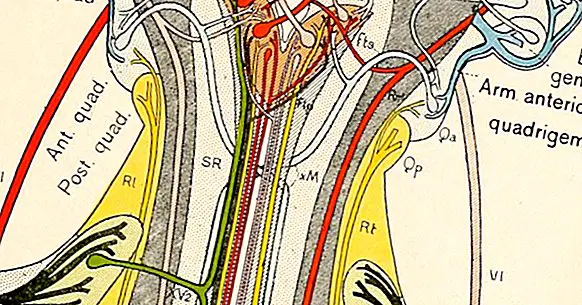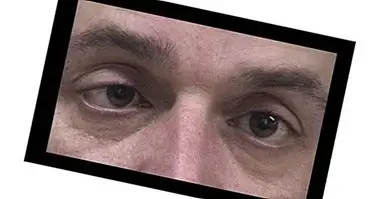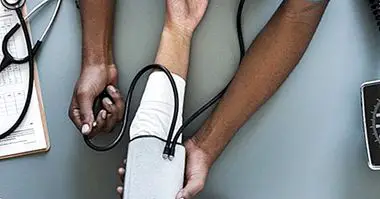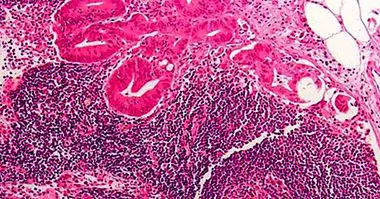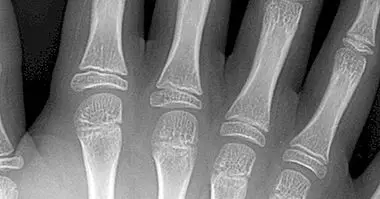The 8 types of psychiatry (and what mental illnesses they treat)
The human being is a tremendously complex organism, formed by multiple corporal systems. And this great complexity can be altered by a large number of diseases. Fortunately, when this happens we have medical and health services to help us. But what happens when we talk about imbalances in brain biochemistry or mental problems?
In these cases we have different professionals such as psychologists or psychiatrists. Regarding the latter, we can find a great variety of subtypes, depending on what aspects they specialize. In this article we are going to talk about the types of psychiatry , mentioning some of the best known subdisciplines.
- Related article: "The 18 types of mental illnesses"
What is psychiatry?
It receives the name of psychiatry the branch of medicine that has as object of study the human mind and mental disorders , from a generally medical-biological perspective.
The psychiatrist's main function is to assess, diagnose and treat the presence of different psychiatric disorders in order to generate a recovery of the subject and an improvement in their quality of life. How doctors are, have the power to prescribe and prescribe psychotropic drugs. The treatment they offer is usually pharmacological or medical , although they must take into account the psychological factors that mediate in the experience of the disorder.
Also, they often have to deal not only with the patient but also with their relatives , especially in cases that require psychiatric hospitalization or when talking about children or the elderly with deterioration or dementias.
It is a specialization within the career of medicine, not being a university career by itself. To be a psychiatrist, it is necessary first of all to take a medical career and then present to the MIR and choose that specialty, after which the student must spend four years as a resident psychiatrist.
Types of psychiatry depending on their specialization
Psychiatry is a branch of medicine of great interest and usefulness for citizenship, trying to treat the various disorders and mental problems that may arise. However, not all psychiatrists work with the same type of patients, There is a great diversity of specializations . In this sense we can find, among others, the following types of psychiatry.
1. Adult psychiatry
General psychiatry is usually treated, as a general rule, with adults who have some type of severe mental pathology. Mood disorders such as depression or bipolarity, anxiety problems and phobias and psychotic disorders are usually the main reason for consultation.
2. Child and adolescent psychiatry
Probably the type of population that is most frequently consulted due to concern for their well-being is the child-youth population. It is a particularly delicate and fragile type of population, with differential characteristics that require a more delicate treatment. It is also one of the types of psychiatry in which they will always need contact with parents or legal guardians , as well as with school institutions.
There are many problems that specialists in this type of psychiatry can treat, highlighting the presence of neurodevelopmental disorders such as autism or ADHD. In addition to this, cases of childhood depression, post-traumatic stress disorder, substance abuse, Obsessive-Compulsive Disorder or psychotic problems, such as incipient psychosis, are also observed and treated.
3. Geriatric psychiatry
Old age is a stage of great changes in people's lives. Retirement, aging and diminishing capacities, illnesses and deaths of loved ones are more frequent in this vital stage. It is a stage with its own peculiarities, the elderly being usually delicate and fragile, and may require a psychiatric service in people with disorders at that age or in order to treat the evolution of a disorder when they reach this age
The professionals specialized in geriatric psychiatry They usually treat the elderly with severe mental disorder and cognitive and behavioral disorders own dementias.
2. Forensic psychiatry
This type of psychiatry is responsible for intervening in the assessment, diagnosis and treatment of subjects with mental disorders and problems with the law. It is characterized for being the one in charge (next to the forensic psychology) of the valuation of the cognitive capacities of face to evaluate the degree of responsibility and criminal responsibility of individuals , in addition to evaluating their progress and contributing to the treatment of possible psychiatric problems.
3. Sexology
Sexual dysfunctions and paraphilias can also be treated from sexology, which often makes use of psychiatrists or psychologists . Problems such as erectile dysfunction, premature ejaculation, anorgasmia, hypoactive sexual desire, aversion to sex, sex addiction or dyspareunia are some examples of the type of problems treatable from this discipline.
4. Psychiatry of eating disorders
Another type of psychiatry that requires great specialization is linked to eating disorders, this type of mental disorder being one of the few that by itself can lead to the death of the sufferer. This type of population requires a comprehensive and differentiated treatment, especially when we are facing serious cases. Anorexia and bulimia are the two most prevalent disorders .
- You may be interested: "Main eating disorders: anorexia and bulimia"
5. Psychiatry of addictions
Addiction to a substance is one of the most frequent problems that can be observed in the population, and requires a specific preparation and knowledge about what implies the addiction, the abstinence or the different ways of treating them. In this sense, addiction to alcohol, cocaine, heroin or cannabis are some of the most common pathologies in this type of psychiatry .
However, we must bear in mind that there are also addictions not linked to substances. Compulsive shopping, gambling or addiction to new technologies are also examples of disorders that can be treated from this type of service.
6. Neuropsychiatry
Neuropsychiatry is a discipline that works with the presence of psychiatric disorders in the context of problems related to the nervous system . In this discipline, there is usually a greater knowledge of the functioning of said system. It usually deals with strokes, patients with cognitive deterioration derived from a mental disorder or from the advice of substances or dementias, among others.
- Related article: "Parts of the Nervous System: functions and anatomical structures"
7. Liaison Psychiatry or Interconsults
This type of psychiatry is characterized by serving as a link between psychiatric and medical aspects that involve the suffering of a disease . Topics such as the experience of a chronic or terminal illness, adherence to treatment or treatment of stress, anxiety or depression that may arise from it are typical of this type of psychiatrist.
8. Emergency psychiatry
A type of psychiatry that although it does in Spain, in other countries it is not recognized as a specialty. This is the psychiatrist who attends emergency situations, such as the emergence of a psychotic outbreak, depression with planned suicidal ideation or emergencies due to drug use.
Bibliographic references:
- Lieberman, J. A., Ogas, O. (2015): Shrinks: The untold story of Psychiatry. New York: Back Bay Books.
- Semple, D. (2005): Oxford Handbook of Psychiatry. Oxford: Oxford University Press.
- Sadock, B. J., Ahmad, S. and Sadock, V. A. (2018): Kaplan & Sadock's Pocket Handbook of Clinical Psychiatry. Riverwoods (Illinois): Lippincott Williams & Wilkins

